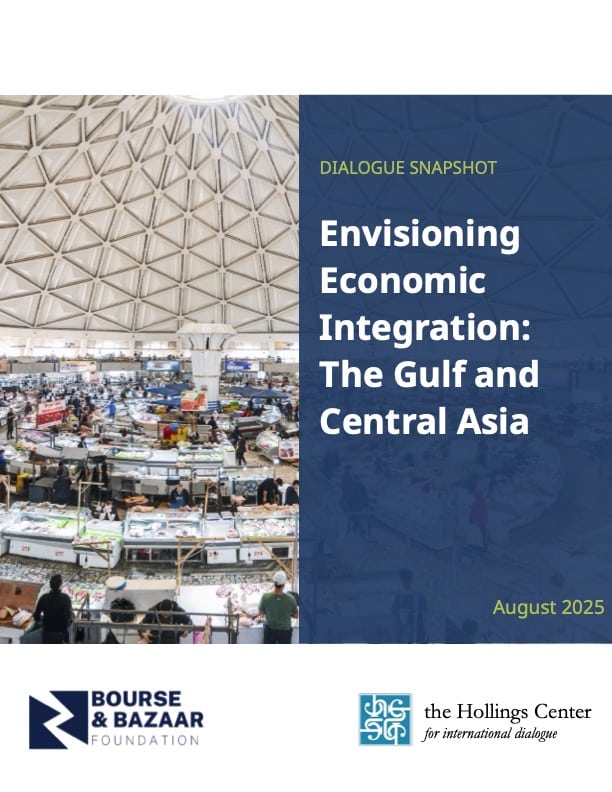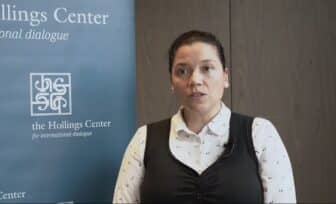DIALOGUE SNAPSHOT REPORT
August 2025
Istanbul, Türkiye
Dialogue Summary
In November 2024, the Bourse & Bazaar Foundation and the Hollings Center for International Dialogue hosted a high-level workshop in Istanbul to explore the evolving strategic relationship between the Gulf and Central Asia. The discussion aimed to identify practical areas of cooperation and to move beyond symbolic diplomacy toward actionable projects in infrastructure, energy, trade, and digitalization. By bringing together scholars, policymakers, and private sector experts, the event created a platform for connecting ideas with real opportunities for interregional engagement.
The dialogue highlighted that both the Gulf and Central Asia are experiencing major economic and political transitions. Gulf countries are using long-term visions such as Saudi Arabia’s Vision 2030 and the UAE’s Principles of the 50 to diversify their economies, attract investment, and strengthen their role in global markets. At the same time, Central Asian states—led by Uzbekistan and Kazakhstan—are implementing reforms, liberalizing markets, and seeking multiple partners to reduce reliance on any single global power. These shifts are driving momentum for business-focused cooperation in logistics, energy projects, and investment corridors that benefit both regions and align with U.S. interests in diversifying trade routes away from China and Russia.
Participants agreed that a sustainable partnership requires stronger institutional support and public engagement. Regulatory barriers, outdated customs systems, and weak infrastructure continue to limit trade and investment. Expanding people-to-people ties, creating business councils, and developing clear research outputs were identified as critical next steps. By addressing these challenges and turning dialogue into action, the Gulf and Central Asia can create a durable, mutually beneficial framework for connectivity, economic growth, and long-term regional stability.
Key Takeaways of the Gulf and Central Asia Dialogue
Both regions are undergoing significant economic and political transitions that create new opportunities for cooperation.
Gulf countries are pursuing economic diversification and global investment strategies, while Central Asian states are reforming markets and seeking multiple partners.
Connectivity projects in logistics, energy, digital infrastructure, and transportation corridors are essential to deepening interregional ties.
Institutional mechanisms, business councils, think tank engagement, and public outreach are necessary to sustain long-term collaboration.
Participants emphasized the need for tangible outputs, including sector-specific research and project tracking, to demonstrate impact and maintain momentum.
U.S. interests can align with Gulf–Central Asia cooperation if initiatives are commercially driven, reduce reliance on China and Russia, and are framed around clear economic benefits.
Building people-to-people connections and ensuring that local communities see benefits from trade and investment will be critical for the sustainability of this emerging partnership.



